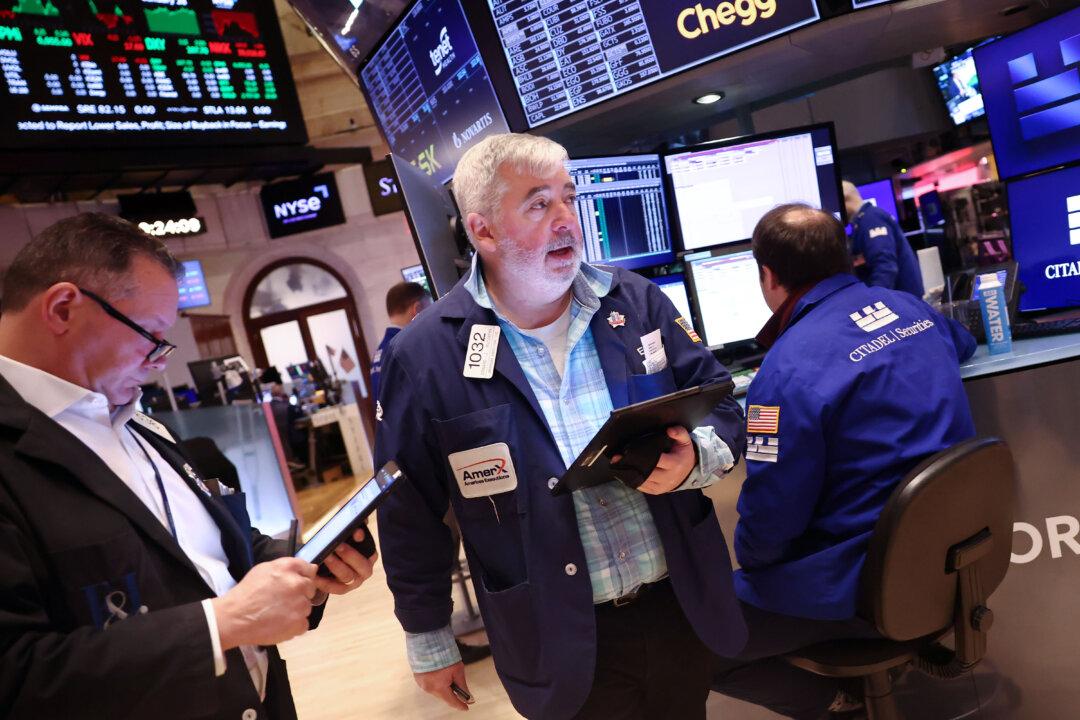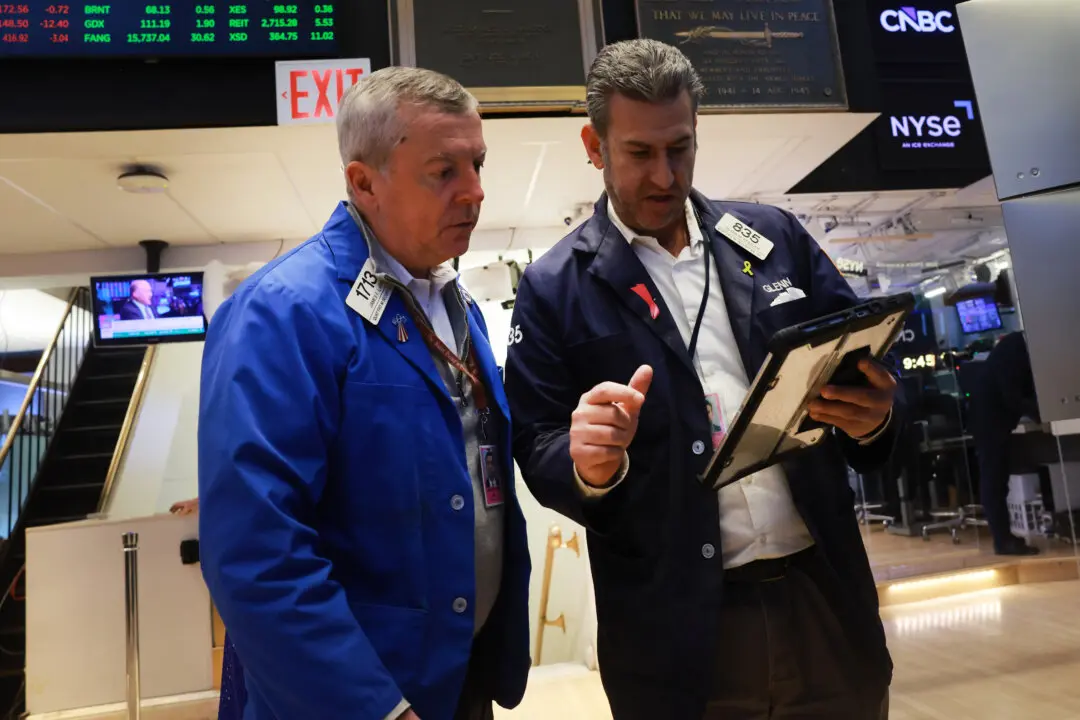U.S. stocks ended a two-week rally on a tech sell-off that began early last week on anxiety over Chinese artificial intelligence (AI) startup DeepSeek. The situation stabilized later in the week, but the road to recovery was bumpy on mixed corporate earnings, volatile bond yields, and anxiety over tariff proposals by Washington.
The S&P 500 ended Jan. 31 at 6,040, down 1 percent for the week; the Dow Jones closed at 44,544, up by 0.27 percent; the Nasdaq finished the week at 19,627, down by 1.64 percent; and the small-cap Russell 2000 was down 0.87 percent to end at 2,287.





